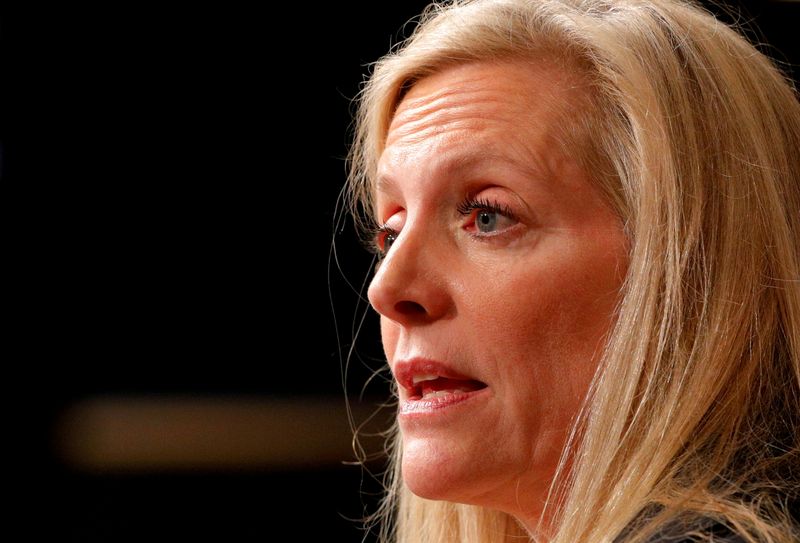By Pete Schroeder
WASHINGTON (Reuters) -Federal Reserve Governor Lael Brainard said Thursday the central bank should move forward with its efforts to gauge how banks might be impacted by climate change, saying such analysis will be a key tool in measuring risks.
In a prepared speech, Brainard noted regulators face "substantial work" in closing data gaps and building new models to adequately gauge risks banks face from climate change. But while the Fed should be "humble" about any initial analysis, that should not deter regulators from developing such tools.
Fed officials have previously suggested such analysis, which would gauge banks' performance against hypothetical climate change risks, could be a helpful tool in ensuring the financial system is well-positioned to navigate a changing climate. Brainard said the Fed is "actively learning" from regulators in other countries who are further along in developing such tests.
At the same time, Brainard noted there are inherent challenges in modeling and predicting climate risks that are distinct from previous stress tests the Fed has built. Existing stress tests measure banks against hypothetical recessions that can be based on historical data, and nothing similar exists for climate risk, she said.

"Climate scenario analysis faces the challenge of having to consider plausible but novel combinations of risks that are associated with substantial uncertainty," she said.
Brainard also noted other novel considerations, including that climate change's impact will not affect every part of the country similarly, and that traditional hedging tools by banks such as insurance may not prove as effective.